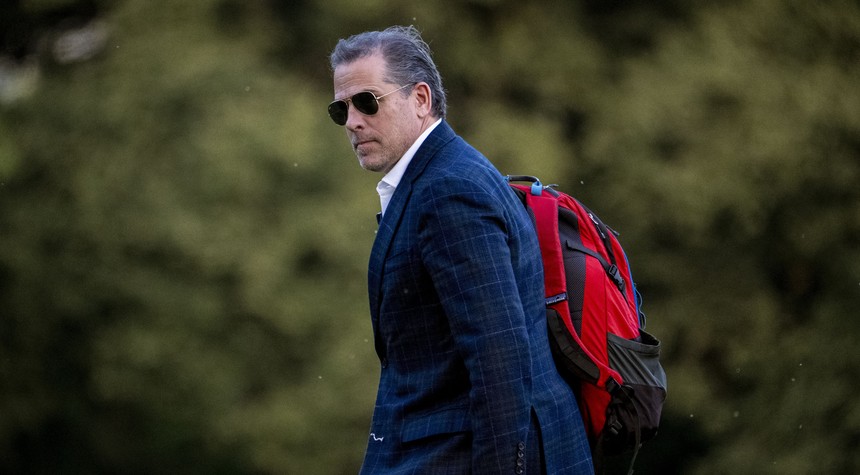By Jennifer Van Laar | RedState

When transcripts of IRS whistleblower testimony were released last month, with the startling claims that U.S. Attorney David Weiss told IRS supervisory special agent Gary Shapley that he wasn’t the one making the decisions on filing criminal charges against Hunter Biden, that he had been denied the ability to file charges in both Washington, D.C. and California, and that he had been denied Special Counsel authority, it certainly seemed that all of the assurances Attorney General Merrick Garland had given Congress about Weiss having full authority to investigate and prosecute were bunk. Garland repeatedly told Congress under oath that Weiss had unrestricted authority, but Shapley’s testimony, also under oath, and contemporaneous emails told a different story.
Consider, though, the possibility that both Garland and Shapley were telling the truth and that Weiss himself has been the roadblock the entire time. Here’s how it could have gone down.
By the time Joe Biden took office in January 2021, the probe into Hunter Biden’s finances had been going on since November 2018. As we learned from the whistleblower testimony, that investigation was initiated by IRS investigators working in a special task force in D.C. as a result of a separate investigation into an online pornography network. Unbeknownst to them, a second investigation into Hunter’s finances had been opened by the U.S. Attorney’s office in Delaware in January 2019 based on bank records, and then-Attorney General Bill Barr consolidated the investigations in March or April 2019 and decided to venue the investigation in Delaware over the objection of at least one IRS whistleblower. So, it had been nearly two years since the investigations were combined and essentially nothing had happened. No early-morning raids, no indication that an aggressive prosecutor – appointed by Donald Trump – was looking to make a splash. All in all, it was looking pretty good for the Bidens.
During the same time frame, Merrick Garland was confirmed as Attorney General in a 70-30 vote after promising that Weiss would continue his work as a U.S. Attorney and that he’d have full authority to continue the investigation into Hunter Biden and file any necessary criminal charges, regardless of jurisdiction. Garland would have already known that Weiss wasn’t seriously pursuing Hunter – whether on his own accord or because of any pressure from others at DOJ – and might’ve thought, well, let’s have Weiss continue to not really investigate, and we’ll have the benefit of seeming impartial in the eyes of the American public since Weiss was a Trump appointee.